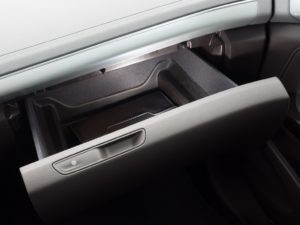Do the Police Need a Warrant to Search Your Glove Box?
Posted September 18th, 2018 by Anthony Carbone, PC.
Categories: Criminal Defense.
 It could be that something just doesn’t seem right to you. The police pulled you over for a minor traffic violation. As the stop progressed, it seemed as though the officer made some unnecessary demands. You had reasons for not wanting to open your glove box. To your shock and horror, he took it upon himself to do so. Was this actually legal? Don’t the police need a warrant to search your vehicle?
It could be that something just doesn’t seem right to you. The police pulled you over for a minor traffic violation. As the stop progressed, it seemed as though the officer made some unnecessary demands. You had reasons for not wanting to open your glove box. To your shock and horror, he took it upon himself to do so. Was this actually legal? Don’t the police need a warrant to search your vehicle?
The short answer is that it depends. Generally speaking, the police will first request your consent before searching your vehicle. If you have nothing to hide, you may give permission – with the assumption that you having nothing to lose. In fact, you may hope that it will hasten the whole uncomfortable process. Meanwhile, you should know that there is no law on the books that requires motor vehicle operators to agree to the police “rummaging” through your car.
What if you don’t consent to a search of your vehicle? You do have some protections under the Fourth Amendment of the United States Constitution. Essentially, there is such a thing as unreasonable search and seizure. Therefore, the police are often required to seek out a warrant before searching your glove box or any part of your vehicle. That said, there are circumstances where a warrant may not be necessary.
Why is this critical information? If a defendant can prove that a search was conducted illegally, any evidence obtained may be suppressed. It might easily be the first step in a defendant’s acquittal.
In the meantime, there are certain circumstances where the police do not need to wait for a warrant to conduct a glove box search. One of them was considered in a recent New Jersey Supreme Court decision.
Probable Cause for a Glove Box Search
State v. Terry was decided by the New Jersey Supreme Court, after decisions by the trial court and the New Jersey Appellate Division were appealed. According to the facts presented in the case, the matter began after a patrol car observed the defendant’s rental truck run through a stop sign.
The police put on lights and sirens, signaling Terry to pull over. Instead, Terry took the officers on a chase, essentially going in and out of traffic. Ultimately, the defendant pulled into a gas station. The officer drew his weapon as he approached Terry and removed him from the truck. The defendant produced his license but did not respond when asked to provide the truck’s registration or proof of ownership.
Terry not only did not comply with the policeman’s directive; he also remained silent. He offered no proof that he was in lawful possession of the vehicle. Since Terry was uncooperative, the officer decided to do a limited search of the glove box with a goal of locating vehicle registration papers. In the end, it was not what was in the glove box that proved problematic.
Upon conducting the search, the policeman noticed a handgun on the vehicle floor. There was nothing obscuring it from view, and therefore, there was no need to secure a warrant. One of the provisions for warrantless searches is known as the plain view exception.
The defendant was subsequently arrested and later found guilty of unlawful possession of a firearm and hollow point bullets.
Defendant Questions Legality of Search
At the trial court level, Terry attempted to suppress the evidence. After all, if the police officer had not searched the glove box, he would not have noticed the gun on the floor. When the court disagreed, the defendant brought the matter up on appeal to the New Jersey Appellate Division.
At the Appellate level, the court found the search unreasonable. NJSA 39:3–29 requires motor vehicle operators to produce certain documentation as requested by police officers. However, the Appellate Court found that the police officers did not afford the defendant enough time to cooperate.
The Supreme Court disagreed. Registration papers are traditionally kept in vehicle glove boxes. Since Terry did not respond to the requested documentation, it was not unreasonable for the officer to conduct a limited search for the registration or proof of evidence. The fact that the gun was discovered as a result was a “bonus” – particularly because it was in plain view. Therefore, evidence of the gun was not suppressed. The guilty verdict was affirmed.
Contact Us
At the Law Offices of Anthony Carbone, we use decades of criminal defense experience in advising and representing our clients. Need help? Contact us to schedule an appointment.


